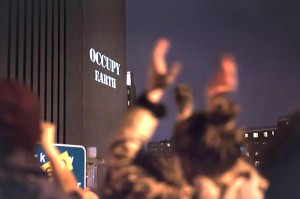(Here is the syllabus for my spring doctoral seminar at NYU cross-listed between MCC and Comp Lit. Consortium students in the New York area are also welcome to join us.)
New York University
Department of Media, Culture, and Communication
French Theory Since 1989
(Special Topics in Critical Theory)
Course number MCC-GE 3010-001 / COLIT-GA 3013-001
SPRING 2015
Prof. Alexander R. Galloway
Office Hours: Tu 2:30-4pm; Th 9-11am
Class Location: East Building, Room 741
Class Time: Thursdays 2:00 - 4:50 pm.
Course Description
In recent decades French and Francophone theory has exerted considerable influence on the world stage. French intellectual exports from the post-World War II period, particularly in the area of feminism, semiotics, and post-structuralism, helped form an entire generation of theoretical inquiry in the English-speaking world. Even today, after the high water mark of postmodern theory has receded, the significance of figures like Michel Foucault or Roland Barthes has not so much faded as insinuated itself deeply into literary canons and course syllabi across the humanities and liberal arts.
This course focuses on recent French theory and philosophy published roughly during the last two decades, work that in some way deviates from the “greatest generation” of 1960s and '70s theory. Our aim is to avoid some of the more familiar texts from the past, and instead seek out a new collection of thinkers (not all of whom are French), and indeed a new incarnation of critical and philosophical questions more apt for the contemporary landscape.
Reading texts by Alain Badiou, François Laruelle, Catherine Malabou, and others, we first examine the contemporary situation, specifically how best to understand the materiality of bodies, societies, and worlds. Then, during the final three weeks of the seminar, each student will select a longer volume, from the five enumerated below, and pursue individual/group inquiry.
We treat this group of authors and texts as a divergent conversation of numerous voices, not a unified school with a single set of interests. Several themes will structure the conversation, including postfordism, materialism, identity, power, and the body. The course will benefit from a number of recent English translations, and students are encouraged to consult the original French texts if their language skills allow it. Continue reading →
